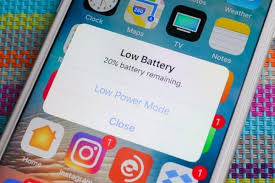
Applications utilized an assortment of stunts to maintain a strategic distance from recognition by Google and tainted clients.
Engineers utilized an assortment of stunts to populate Google Play with in excess of twelve applications that besiege clients with promotions, in any event, when the applications weren’t being utilized, specialists said on Tuesday.
Among the strategies used to bring down the odds of being gotten by Google or annoyed clients: the applications hold up 48 hours before concealing their essence on gadgets, hold off showing promotions for four hours, show the advertisements aimlessly interims, and split their code into different records, specialists with antivirus supplier Bitdefender revealed. The applications additionally contain working code that does the things guaranteed in the Google Play depictions, giving them the presence of authenticity. On the whole, Bitdefender discovered 17 such applications with a consolidated 550,000 establishments.
One of the applications Bitdefender examined was a dashing test system that additionally charged in-application expenses for additional highlights. While it functioned as publicized, it likewise forcefully showed advertisements that depleted batteries and now and then kept individuals from playing the game. Following a four-hour holding up period, promotion shows are produced utilizing an arbitrary number (under three) that was checked against a worth. On the off chance that the irregular number was equivalent to the worth, a promotion would show up.
The outcome: when a client opens a contaminated telephone, there’s a one-in-three possibility it will show an advertisement. The promotion demonstrating components are likewise dispersed inside different exercises and utilize changed adware engineer units. The arbitrariness of the advertisement events and show time interims further make it difficult to see themes that may help distinguish the source. The application utilizes different stunts to make the showcases erratic.
“Users see multiple ads either in-game when pressing different buttons or even if not in the app,” Tuesday’s report said. “The frequency at which ads appear while in the game depends on a random value. In half the cases, there is a probability that when using some game functionalities, an ad pop[s] up.”
The application likewise parts its substance into two asset records. The advertisement serving code is found in the first, while the working game code is found in the second. Bitdefender specialists composed:
In terms of registered receivers, the first one is for android.intent.action.BOOT_COMPLETED. When the broadcast is received, the app will begin an activity, which starts a job scheduler for showing ads. The scheduled service starts after 10 minutes and shows an ad only once. The scheduler recreates itself by calling the method from the activity that created it initially, then starts again after 10 minutes.
Another receiver the app registers is for android.intent.action.USER_PRESENT. Whenever the user unlocks the device, if at least 4 hours have passed since the app installed it, there is a chance an ad will show. That’s because the ad displays are programmed by generating a random number of less than 3 that is checked against a value. If the number generated is equal to the check number, an ad appears. Therefore, the probability of displaying ads is once every three times the user unlocks the phone.
On the whole, Bitdefender discovered 17 applications that utilization similar strategies. They were downloaded a sum of multiple times. At distribution time, Google was expelling the applications from Play. Google agents didn’t quickly react to an email looking for input for this post. The applications are:
- Vehicle Racing 2019
- 4K Wallpaper (Background 4K Full HD)
- Foundations 4K HD
- QR Code Reader and Barcode Scanner Pro
- Record Manager Pro – Manager SD Card/Explorer
- VMOWO City: Speed Racing 3D
- Standardized tag Scanner
- Screen Stream Mirroring
- QR Code – Scan and Read a Barcode
- Period Tracker – Cycle Ovulation Women’s
- QR and Barcode Scan Reader
- Backdrops 4K, Backgrounds HD
- Move Data Smart
- Pilgrim File Manager
- Today Weather Radar
- Mobnet.io: Big Fish Frenzy
- Clock LED
In fact, the applications aren’t delegated malware on the grounds that they limit their concealed capacities to showing promotions. Given the battery seepage they cause and the potential that the engineers may include new, progressively detestable practices in refreshes, these applications ought to be uninstalled when commonsense.
Disclaimer: The views, suggestions, and opinions expressed here are the sole responsibility of the experts. No journalist was involved in the writing and production of this article.

